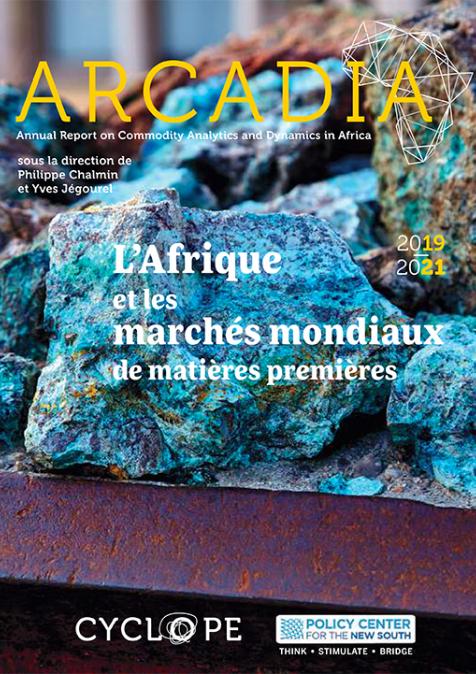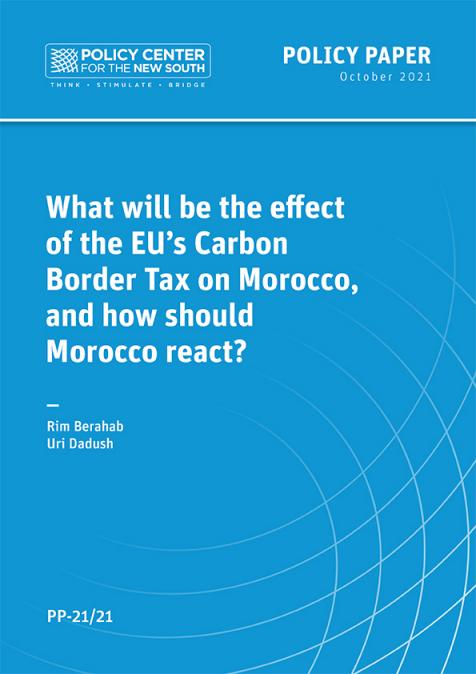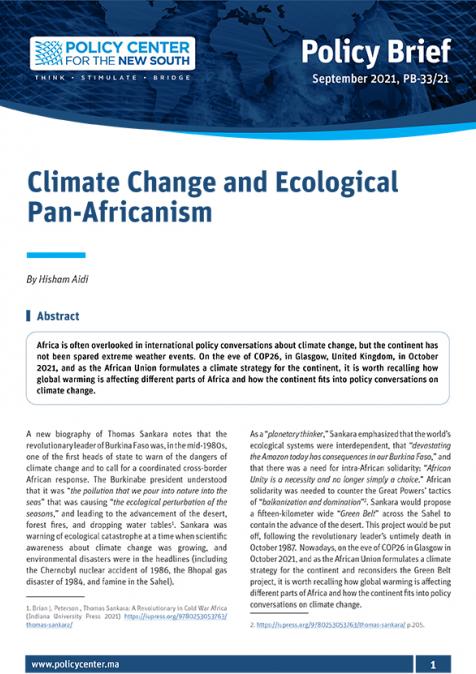حديث الثلاثاء: التأثيرات المناخية ومستقبل الجنوب العالمي: رؤى وحلول من مؤتمر الأطراف
November 28, 2023
في حلقة هذا الأسبوع من حديث الثلاثاء، سنحاول تقييم أهم نتائج المؤتمر العالمي لتغير المناخ للسنة الماضية وتأثيرها على دول الجنوب العالمي نظرا لاحتياجاتها من التمويل للتخفيف وقدرتها على التكيف مع هذه التغيرات، خاصة وأن أن هذه الدول فقدت ما لا يقل عن 525 مليار دولار أمريكي بسبب تأثيرات التغير المناخي منذ عام 2000 حتى عام 2019. بالإضافة إلى ذلك، مع تزايد المخاطر المترتبة على تغير المناخ، ارتفعت تكاليف رأس المال والديون إلى مستويات لا يمكن تحملها في اقتصادات الدول الهشة خاصة بعد جائحة كوفيد19. أخيرا، سنسلط الضوء في هذه الحلقة على أهمية التعاون بين الاقتصادات المتقدمة والنامية وكذا على الدور الأساسي للرساميل الخاصة في مكافحة تغير المناخ
Speakers

Sabrine Emran
Economist
Sabrine Emran is a Finance graduate specializing in financial markets and commodities. She holds a Grande Ecole master’s degree in Management from IESEG School of Management and ISCAE Group, as well as a Specialized master’s degree in Financial Markets from Paris Dauphine University and ENSAE ParisTech. Sabrine Emran started her career in investment writing and product development in the asset management branches of insurance companies and investment banks in Paris, working mainly on alternative investment asset classes. She was also recently a commodities analyst, focusing on risk management strategies for energy and agricultural commodities as well as foreign exchange risks. Sabrine Emran joined the Policy Center for the New south in September 2022 as an economist where she ...

Afaf Zarkik
Senior Economist
Afaf Zarkik is an economist at the Policy Center for the New South and a graduate in energy strategies from Ecole des Mines de Paris. Among her areas of research and reflection: energy commodities monitoring and energy transition and sustainable development policies analysis. Before joining the Policy Center, A. Zarkik was an analyst in oil and gas mergers and acquisitions, a venture capital analyst in a cleantech fund, and a senior analyst in asset management.
Afaf Zarkik est économiste au Policy Center for the New South et ingénieur titulaire d'un Master en stratégies énergétiques de l'École des Mines de Paris. Parmi ses axes de recherche et de réflexion : la veille des marchés des matières premières énergétiques et l'analyse des politiques de transition énergétique et de ...





